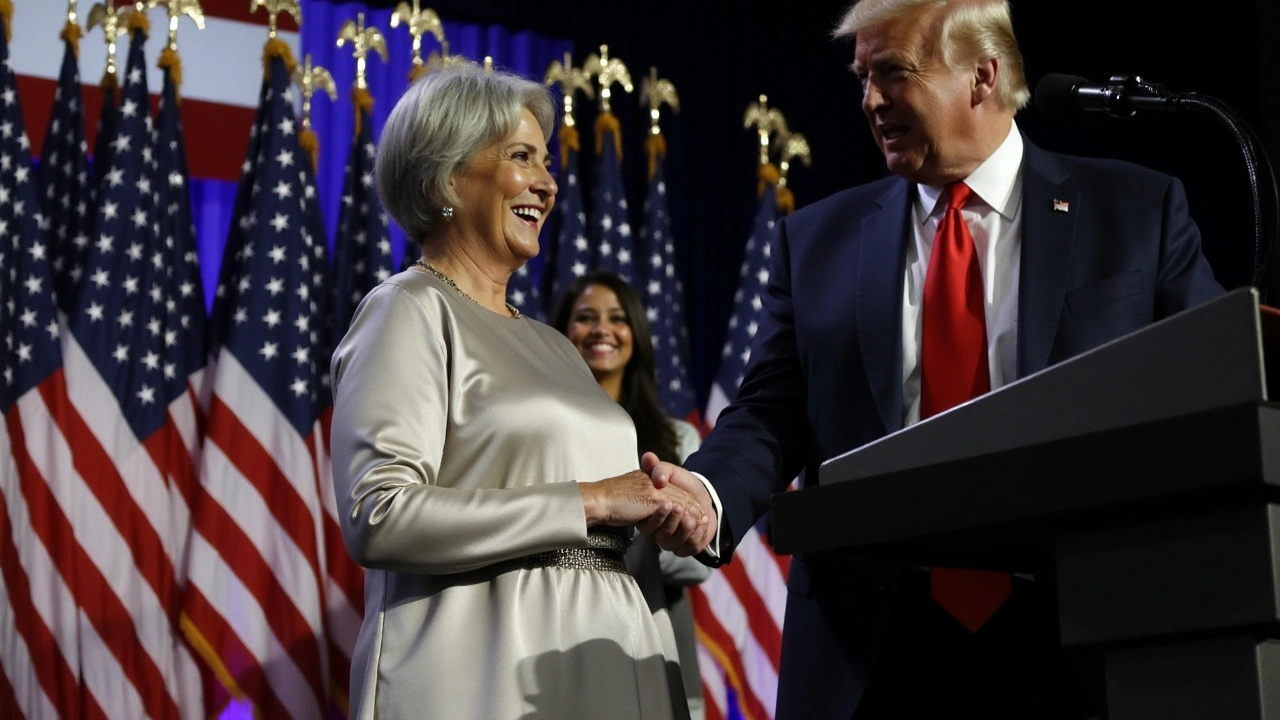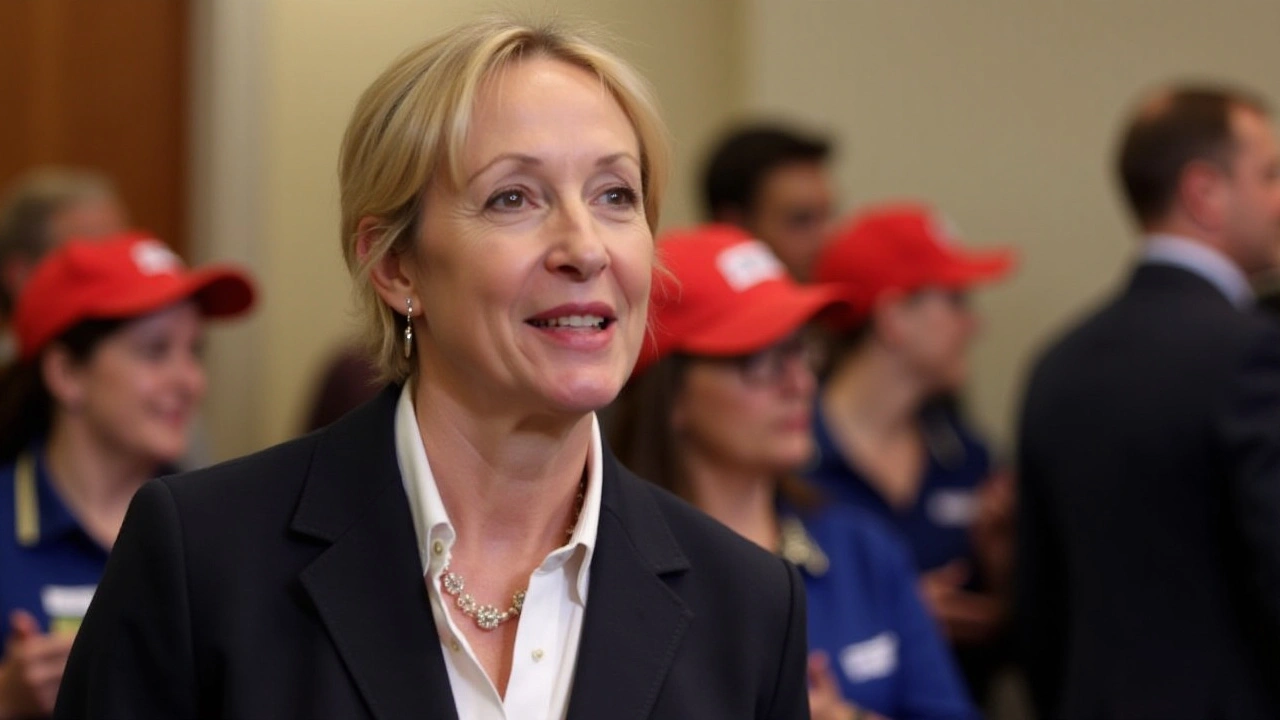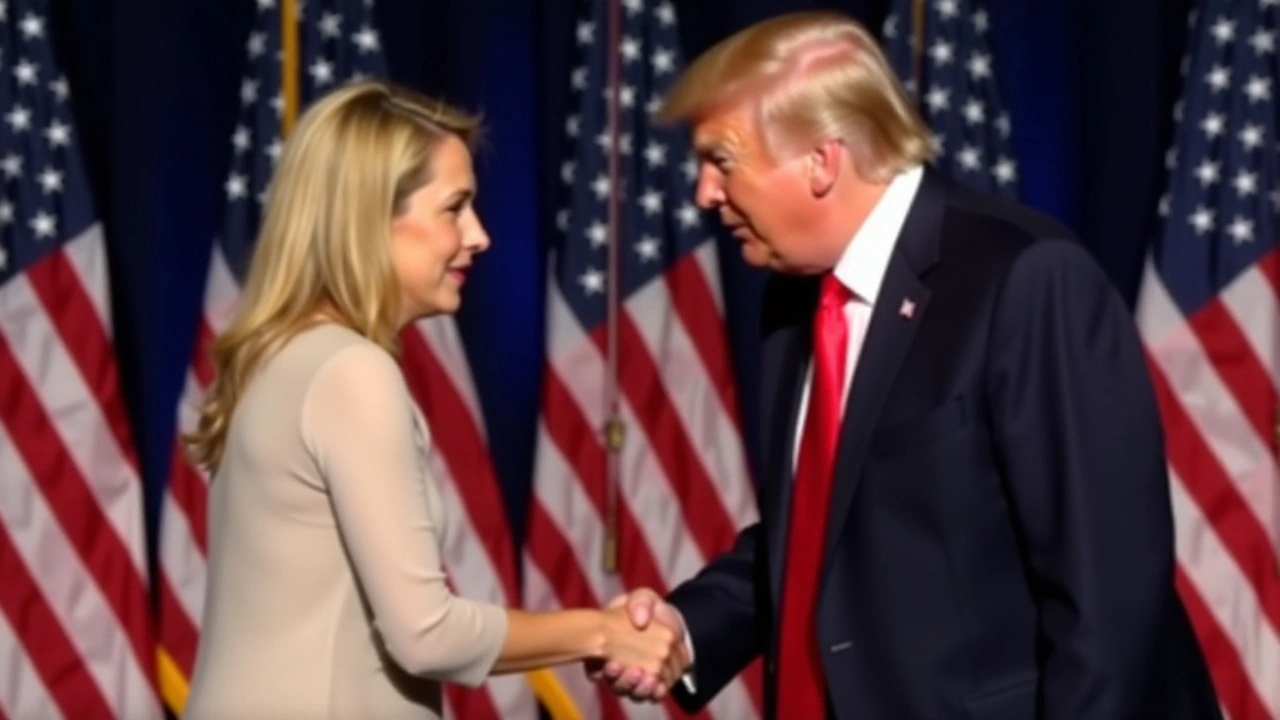Introduction to Susie Wiles
In a historic move, Donald Trump has appointed Susie Wiles as Chief of Staff, marking a significant milestone as she becomes the first woman to ever be named to this role. Wiles, who has made substantial contributions in her political career, particularly within the Republican sphere, has garnered a reputation for her strategic prowess. This designation is not just a feather in her cap but represents a shift in the traditionally male-dominated sphere of U.S. presidential staff positions.
Her Political Journey
Born into an influential family, with her father being the renowned NFL broadcaster Pat Summerall, Susie Wiles was perhaps always destined for the public eye. However, she has often chosen to shy away from the limelight, despite her achievements and success in political circles. Her career began in earnest in 1980, with Ronald Reagan's presidential campaign—a testament to her long-standing experience and dedication to Republican ideologies.
Her work with the Trump campaign, especially during the tumultuous elections of 2016 and 2020, helped solidify her standing as a resilient and effective campaign manager. Beyond Trump's campaigns, she was pivotal in the success of other Republican figures, including Florida Governor Ron DeSantis and former Governor Rick Scott. Add to that her brief stewardship of Jon Huntsman’s 2012 presidential bid, and her résumé speaks volumes about her capabilities.

Challenges and Criticisms
While Wiles' resume boasts an impressive list of victories, her new role will not come without its challenges. Critics point to her limited experience within the White House infrastructure and her notable absence from Washington's political scene over the last four decades. This inexperience, according to some analysts, could impede her ability to navigate the intricate layers of federal bureaucracy effectively.
Yet, her supporters argue that her ability to manage Donald Trump, confronting him when necessary, holds more weight than conventional Washington experience. Her acquaintances within Trump’s family, and indeed her alliances with figures like Robert F. Kennedy Jr. and Elon Musk, equip her with a robust network that could potentially bolster her effectiveness in Washington.
The Role of a Chief of Staff
The White House Chief of Staff is a pivotal role involving balancing an array of responsibilities that affect the administration's overall success. This position involves orchestrating the president's schedule, regulating information flow, and functioning as the primary gatekeeper to the President. Given Trump's noted distaste for traditional structure during his last term, Wiles' role could potentially oscillate between challenging and transformative.
Ensuring alignment between Trump's political vision and policy execution will be central to her function. The Chief of Staff's ability to act as an intermediary between different cabinet members and the president can lead to a smoother, more efficient administration, as historical records suggest.

Public Reaction and Future Implications
The public and political reactions to Wiles' appointment have been mixed, given her lack of direct White House experience but extensive campaign success. For Trump's supporters, her selection signifies a dedication to a trusted team that has won him past victories. Meanwhile, critics argue about the necessity of a more experienced Washington insider to guide him.
Her appointment is expected to yield a cascade of staff decisions that will shape Trump's administration come his return on January 20. How she will manage these upcoming transitions could set the course for not only her career but also for the pace and tone of Trump's renewed presidency.
Conclusion
Amidst the backdrop of political anticipation, Susie Wiles' appointment is a historic and strategic decision. Her previous accomplishments and sagacity in navigating the unpredictable currents of American politics make her a noteworthy figure at this pivotal moment. Whether she rises to become a celebrated historical figure akin to past pivotal Chiefs of Staff or faces obstacles that temper her influence, one thing remains certain: Wiles is stepping into a role that could redefine the perception of political leadership at the highest echelons.

12 Responses
Wow that's a bold move, Trump finally shuffled the deck.
The appointment of Susie Wiles constitutes a paradigmatic shift in the historiography of executive staffing, signaling a departure from entrenched gender norms within the highest echelons of American political machinery. Her trajectory, commencing amid the Reagan Revolution, furnishes a longitudinal case study of Republican campaign operationalization across successive electoral cycles. By integrating multimodal communication strategies and leveraging coalition-building mechanisms, Wiles has demonstrated an adeptness at orchestrating voter mobilization matrices. Moreover, her strategic acumen in navigating intra-party factionalism exemplifies a nuanced comprehension of the partisan equilibrium. The confluence of her legacy networks with emergent technocratic paradigms suggests a potential recalibration of policy implementation pipelines. Critics who foreground her paucity of Washingtonian institutional immersion neglect the translatability of campaign logistics expertise to administrative governance. Empirical analyses of prior Chiefs of Staff illustrate that adaptive leadership competencies often eclipse procedural familiarity in periods of political volatility. Wiles' proximity to Trump, coupled with her capacity to interject corrective feedback, may function as a moderating vector within an otherwise unstructured executive environment. The synthesis of her campaign-derived operational frameworks with the exigencies of federal bureaucracy could engender a hybridized governance model. This hybridization warrants scholarly attention, particularly regarding its implications for inter-agency coordination and legislative liaison efficacy. From a strategic management perspective, the appointment underscores the primacy of loyalty metrics in high-stakes political appointments, albeit tempered by performance-based considerations. The resultant power dynamics within the White House staff hierarchy are poised to reflect an equilibrium between traditionalist institutional actors and insurgent campaign operatives. Consequently, the capacity of Wiles to exert gatekeeping authority may redefine informational flow architectures. Additionally, her role may catalyze a reexamination of succession planning protocols within the executive branch. The longitudinal impact of her tenure will likely be measured against metrics of policy enactment speed and staff turnover rates. In sum, this development is emblematic of an evolving political calculus wherein experiential diversity is increasingly valorized.
Congrats on breaking the glass ceiling, that’s great news!
It’s refreshing to see a woman step into such a pivotal role, especially given the historical scarcity of female representation at that level. While some skeptics will undoubtedly focus on her lack of White House experience, the reality is that campaign management skills are highly transferable. The ability to coordinate complex operations under pressure is precisely what the chief of staff must excel at. Moreover, her established rapport with Trump could facilitate smoother communication channels that have often been a source of friction. In the broader context, this appointment could inspire a new generation of women to pursue leadership positions in politics.
One must acknowledge the sheer audacity of appointing a seasoned campaign strategist to a role traditionally reserved for Washington insiders. Her résumé, replete with victories across multiple election cycles, showcases an unparalleled command of political orchestration. Nevertheless, the transition from campaign battlegrounds to the intricate corridors of executive governance presents a formidable challenge. It will be fascinating to observe how she integrates her battlefield tactics within the institutional framework of the White House.
Power is a subtle dance; the steps matter more than the music.
Wiles must master the rhythm of bureaucracy.
What an exciting development! 🎉👏 This could really shake things up in a good way, bringing fresh perspectives and new energy to the administration! 🌟💪 I’m hopeful we’ll see some innovative policies and a more inclusive approach moving forward! 😄👍
DON’T THINK THIS IS JUST A TOKEN GESTURE, SHE’S GONNA REWRITE THE RULEBOOK! THIS IS A POWER PLAY THAT WILL REDEFINE THE ADMINISTRATION!
The formal appointment signals a strategic recalibration within the executive branch. It remains to be seen how procedural protocols will adapt to her leadership style. A measured approach will be essential to maintain institutional stability.
Ah, the classic “new blood” narrative-how original. Let’s hope the reality lives up to the headline hype, or else we’re just watching another circus act. Time will reveal whether this is a genuine reform or a temporary spectacle.
lol they gonna ruin everything.
One cannot dismiss the symbolic weight of this appointment without acknowledging the underlying power dynamics at play. The alliance between Wiles and the incumbent president epitomizes a calculated consolidation of influence, cloaked in the veneer of progressivism. While the optics suggest a forward‑leaning agenda, the reality may well be a strategic maneuver to fortify an existing hierarchy. The overt emphasis on gender representation serves, in part, to deflect scrutiny from substantive policy debates. Ultimately, the true test will be whether this move translates into tangible institutional change or remains a performative gesture.